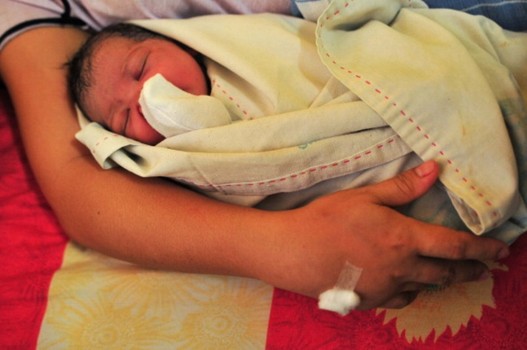The generally accepted practice of identifying newborns as “Babygirl” or “Babyboy” when parents haven’t selected a first name for their infant may be contributing to medical errors, according to a new study. The research was published in the journal Pediatrics.
“We were able to demonstrate what everyone sort of knew but couldn’t prove – that using a generic naming convention increases the risk of wrong-patient errors, such as placing orders on the wrong patient,” lead author Jason Adelman, MD, a patient safety officer at Montefiore Medical Center in New York City, told HealthDay.
In a previous study involving 339 newborn intensive care units (NICUs), Adelman found that nearly 82 percent used indistinct names such as “Babyboy Smith” and “Babygirl Jones.” The remaining 18 percent used a more specific naming convention that incorporated the mother’s name, such as “Janesboy Smith” and “Annsgirl Jones.”
In the previous study, 11 percent of the NICU medical errors were due to patient misidentification. This was due in part to the similar last names and birth dates of many of the newborns in the NICUs, explained Adelman.
In addition to wrong-patient electronic orders, other possible misidentification errors in the NICU include reading imaging tests or pathology specimens for the wrong patient or administering blood products to the wrong patient.
“One particularly concerning wrong-patient error unique to NICUs and hospital nurseries is feeding another mother’s expressed milk to the wrong infant,” wrote the authors.
For the current study – conducted over a two-year period – Adelman and his team analyzed how often doctors submitted an order for tests, procedures or drugs for individual babies and retracted it within 10 minutes, then placing the same order on another infant. This process is known as retract-and-reorder (RAR).
From July 1, 2012 to June 30, 2013, the researchers monitored RARs that occurred when the generic naming convention was used. The next year, July 1, 2013 to June 30, 2014, they launched and followed a new identifying system that incorporated the mother’s first name on the baby’s ID tag. In cases of multiple births, numbers were added to the name indicating “1Annsgirl Jones” and “2Annsgirl Jones.”
The researchers found that after adopting the more specific naming convention using the mother’s first name, there was a 36.3 percent reduction in medical errors, falling from 59.5 per 100,000 to 37.9 per 100,000.
However, the study authors acknowledged that there were drawbacks to their study. It is possible, they said, that there were fewer errors because NICU staff were less likely to make mistakes while change orders were being closely monitored. In addition, Adelman told Reuters Health that they “can only rely on reporting, and the evidence shows that doctors only report 1 percent of the errors they make.”
Still, Adelman and his team hope the study will encourage more hospitals to change their naming procedures.
“Now that there’s strong evidence that this really makes a difference, I’m hoping this will accelerate the adoption of using these more distinct names,” said Adelman. “That’s the best news for parents out there.”








